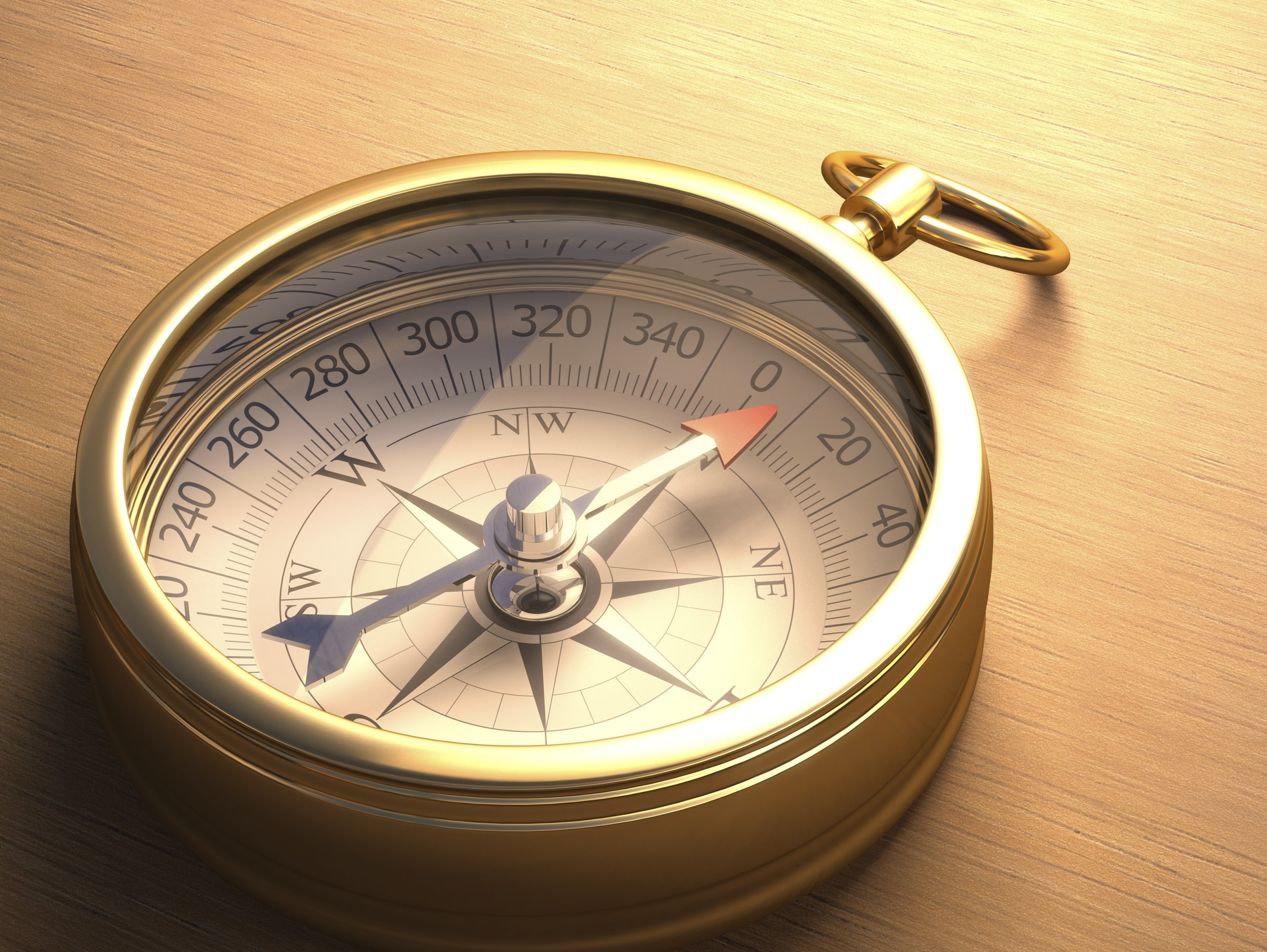
This month countless students will start the new academic year and struggle with age-old existential questions: How do I find my way in the academic labyrinth? What should I bring on this journey? My advice is simple: Travel light. A compass, a tuning fork, a magnifying glass, and a pair of dice will suffice.
First, the compass. Albert Einstein vividly remembered his first scientific experience. At the age of 4 or 5 his father gave him a magnetic compass. He recalled how he was fascinated by the fact that the compass needle always pointed in the same direction. But Einstein saw something else that few other children would notice. As he walked with his compass across the room, the needle kept pointing north. It was the sensation of the invisible magnetic field that remained with him forever, as the perfect premonition of his revolutionary new ideas of space and time.
Similarly, young researchers have an internal compass that picks up the tug of the magnetic field of the zeitgeist. Undeterred by the preconceived ideas of more experienced scholars, they sense what’s not yet visible—the direction that exciting developments will guide them. These subtle signals picked up by imagination and intuition can be easily overwhelmed. As Einstein later said, “Imagination is more important than knowledge. For knowledge is limited to all we now know and understand, while imagination embraces the entire world, and all there ever will be to know and understand.”
Then the tuning fork. Curiosity is a finely tuned instrument. You resonate with a certain subject or not, and you are the only one who can hear the vibrations of your inner tuning fork. Go to a lecture, read a book, watch a documentary, and then listen whether the signal gets amplified or diminished. Are you more motivated to delve further into the subject? Then do so without constraint. But if you hear no resonance, move on to something more engaging.
Therefore, the third item in the backpack is particularly important: the magnifying glass. Details matter in scholarship. Certainly at the beginning of your career, it’s tempting to take on everything at once. There is so much to enjoy. But that is foolish. Multitaskers apparently perform worse than single-minded people on any task, including multitasking! So, focus on something that appeals to you and dig deeper. Forget the big picture for a moment and allow yourself to be lost in the weeds where the subject really comes to life. Do you have multiple interests? Then try to attend to these consecutively rather than simultaneously. At some point everything will fall together beautifully, but not necessarily at the start of your career.
Finally, the counterweight to the magnifying glass: the pair of dice. Everyone has heard stories of dolphins pushing sailors lost at sea back to shore. One theory states that dolphins do so led by high moral standards. The second explanation is that they just like to play and push things around. Only the lucky ones who are pushed in the right direction are left to tell the story.
Chance and opportunity are key factors for success in an academic career, too, as long as you pay attention. As Pasteur famously said: Chance favors the prepared mind. Every now and then you have to push yourself out of your comfort zone. Random events can help you. Force yourself to look over the fence by reading a book or attending a lecture well beyond the familiar routine.
What certainly is not in your backpack is a map. It’s impossible to draw a clear route to success, no matter how often well-meaning parents, friends or teachers try to do. There is no objective optimal destination; each individual is in search of his or her own niche. Furthermore, such a map would consist largely of blank places inhabited by unknown monsters. There might be few blank spots on the map of the earth, but the world of knowledge is full of unexplored areas.
Without the benefit of a roadmap and little intellectual baggage, you have a great disadvantage and a great advantage. The disadvantage is that you have little experience. The advantage is that you have little experience.
You are at the begin of an adventurous and unpredictable journey, but the best part of it all will be the traveling companions you will meet, true kindred spirits. The present mechanical worldview of the natural sciences, where everything is predetermined by an initial position and evolves according to the rigid laws of nature, is too easily applied to our personal lives. This places great emphasis on our place of origin, the family we grow up in, our childhood, our immediate neighborhood, our schools.
But life is much more determined by where you end up. The university, the world of knowledge, is a place of destination, intellectually and physically. Young people come from far and wide to find like-minded companions. Even though the path is long, tortuous and uncertain, in the end you’ll find your way home.
More Must-Reads from TIME
- Donald Trump Is TIME's 2024 Person of the Year
- Why We Chose Trump as Person of the Year
- Is Intermittent Fasting Good or Bad for You?
- The 100 Must-Read Books of 2024
- The 20 Best Christmas TV Episodes
- Column: If Optimism Feels Ridiculous Now, Try Hope
- The Future of Climate Action Is Trade Policy
- Merle Bombardieri Is Helping People Make the Baby Decision
Contact us at letters@time.com